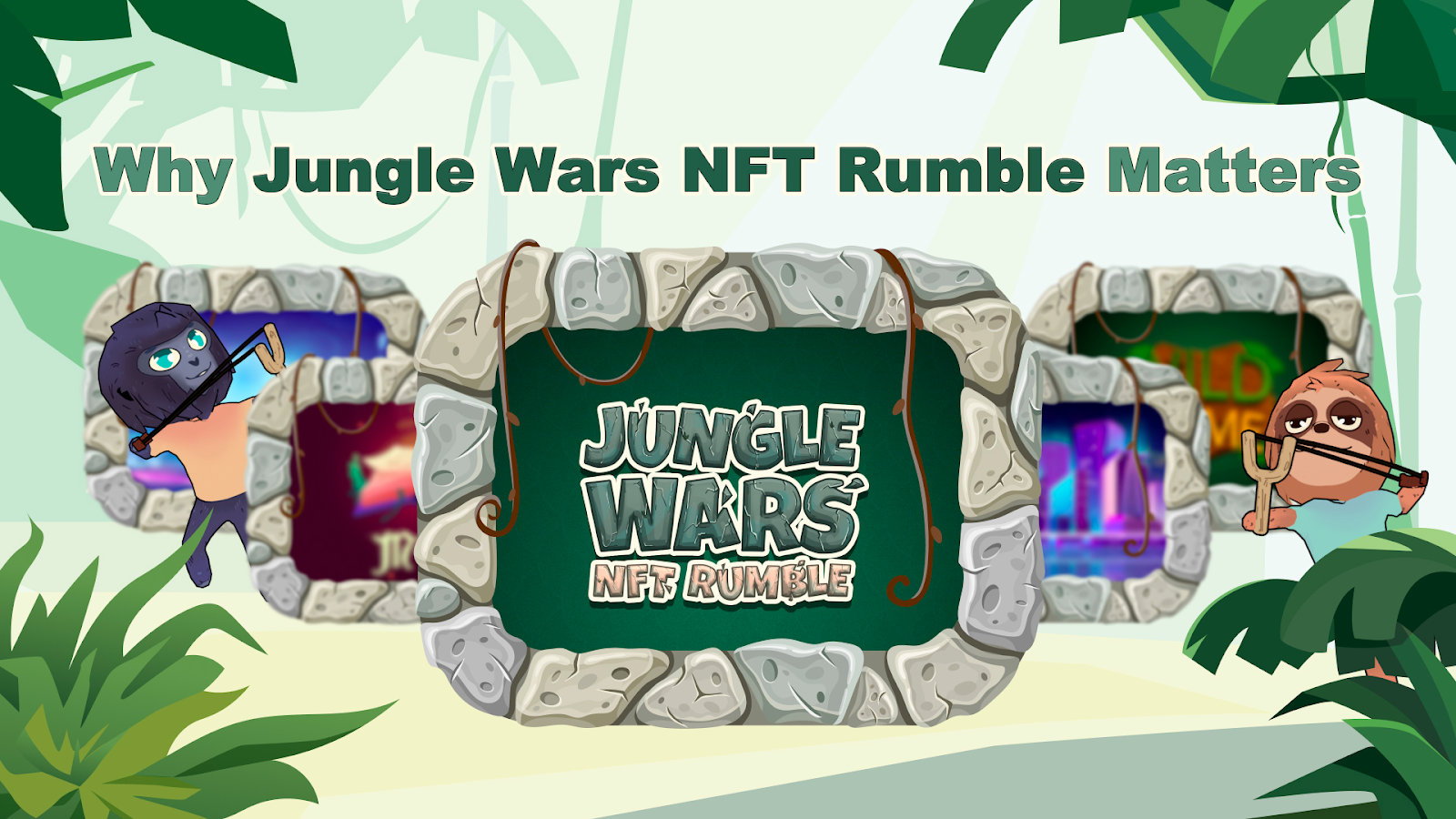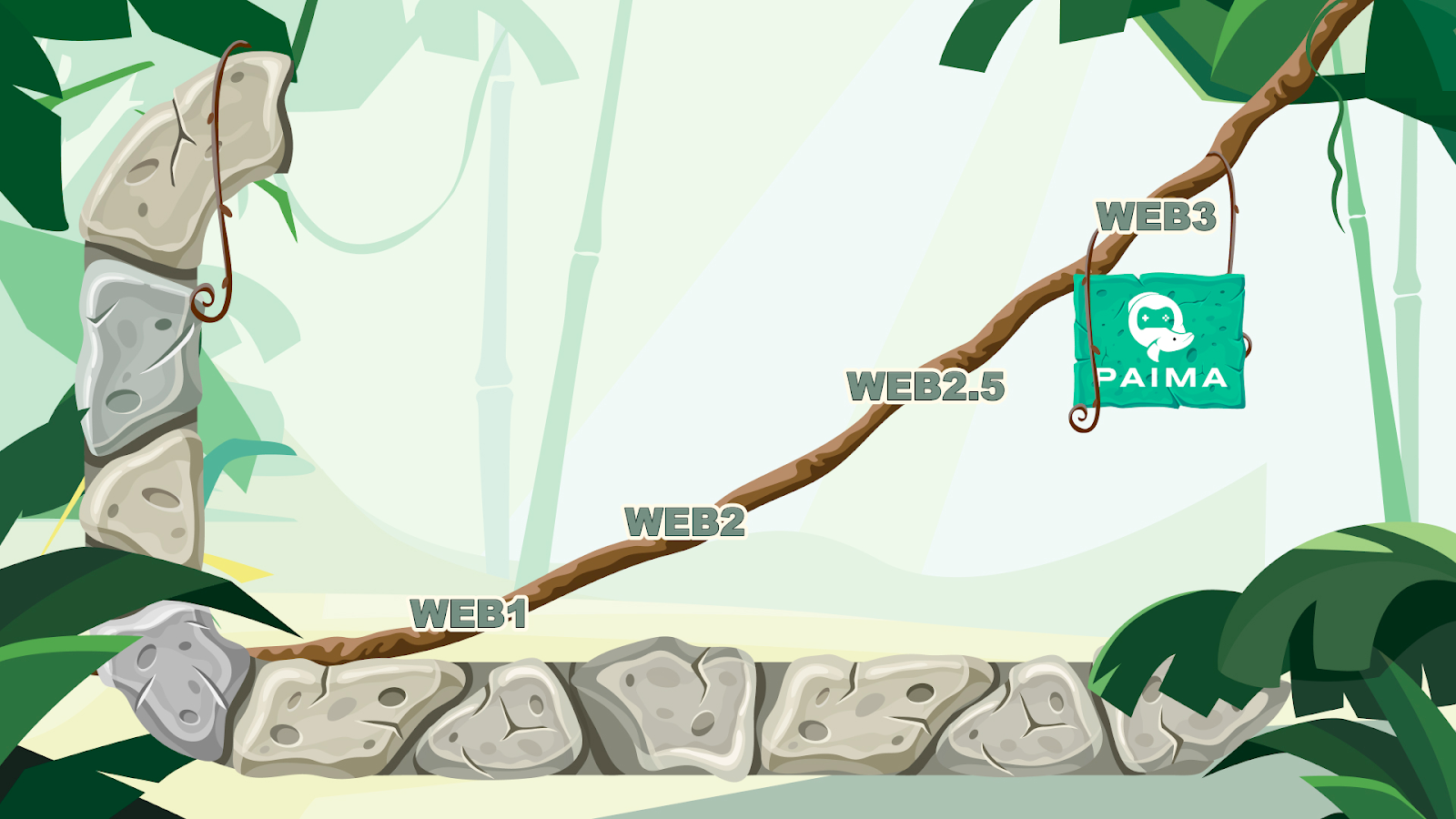
Like many others out there, we love gaming and greatly appreciate all of the fruits blockchains have brought to the world. We believe there is much room for blockchain gaming to grow, and we wish to take a pivotal role in making that possible.
Blockchain gaming is not a new industry. Like many things in the blockchain space, it has already reinvented itself several times throughout its short existence. It is slowly beginning to mature, but the vast majority of projects are stuck with an old-world mentality that stops them from exploring the benefits of real decentralized web3 gaming.
We’ve addressed the limitations of the very common play-to-earn (P2E) model and why it’s destined to fail in this blog post. Still, real fundamentals are lacking in the current world of blockchain games.
The Current State of Blockchain Gaming: Web2.5
Here at Paima Studios, we define the current landscape of blockchain gaming not as web3 gaming but as web2.5 gaming. These games incorporate one small element of blockchain technology but are yet to fulfill the decentralization ethos that is the defining factor of the blockchain movement. These games keep the same model of web2 games and simply glue tokens and NFTs on top and call it “web3”.
Such “duct taping” of web3 elements onto web2 games does not make these games web3 games (in the same way that putting on a pirate costume and saying “argghh!” does not make you a pirate). Most importantly, doing this does little to improve the user experience, if not completely degrading it.
If anything, the exclusivity and tokenization models adopted by these web2.5 games have given them a short and predictable life cycle. A player base rises up quickly, primarily composed of people trying to make a quick buck and take advantage of good-hearted players, before experiencing a sharp drop off once the economic incentives from playing have dried up. Resulting in an even worse user experience.
Furthermore, all of the issues of web2 exacerbate the problems of web2.5 games:
- Botters drive down P2E games by destroying their entire economies.
- Hackers can exploit the centralized server model and make lots of money while destroying the game (like typical MMOs).
- Users have no guarantee that the centralized company will not go bankrupt and the game will stop existing because the centralized servers are not being run anymore.
- Users have no guarantee that their game assets will continue to have value, as at some point, the centralized servers will go offline (when it becomes unprofitable to the company or point #3). Then the assets are just worthless tokens that no one will ever want.
- User experience is greatly diminished with clunky token-based integrations that only make everything more cumbersome while still being fully centralized (thus no real benefits).
- Among a host of other problems tied to the centralized nature of web2.5.
Gaming That is Truly Web3

How do we bring gaming into the world of web3 and use blockchain to provide users palpable benefits that were never possible before (in the same way that DeFi did in the world of finance)?
There needs to be a focus on the true fundamentals that will allow web3 blockchain games to be truly decentralized and outlive the companies that created them.
Web2.5 games don’t focus on decentralization at all, which limits longevity and degrades interoperability with the blockchains themselves. Paima Studios is building a decentralized web3 gaming technological stack where if we as a company go out of business, the games themselves will continue to run as if nothing had happened.
This is only possible with a focus on building with the end goal of decentralization from day 1. It can never be slapped on top after the fact, as it influences how the games are designed and built from their very core. We expect the games we build to be able to run in 25 years just as well as they will run today (if not better, thanks to all of the scaling benefits the underlying blockchains will likely experience). We have decentralization as a core part of our long-term roadmap (just as any serious blockchain project should).
Jungle Wars: NFT Rumble: A New Gaming Paradigm

Jungle Wars: NFT Rumble is a fun casual Player Vs. Player game which acts as a first proof-of-concept of the tech that will unlock the Web3 gaming future we’ve described above. Paima Studios designed and built a novel decentralized web3 gaming backend called Paima Engine, the underlying tech behind Jungle Wars, allowing all of this to be possible.
Jungle Wars: NFT Rumble will launch on Milkomeda C1 in early January (click here to learn more about Milkomeda), allowing players to enjoy innovative Web3 gaming using Metamask. Every lobby created, joined, and all moves played are submitted on-chain, providing trustlessness and determinism that few other blockchain games today can compete with.
It is worth noting that transactions on the Milkomeda C1 are extremely fast, typically confirmed within 4 seconds and costing only ~0.01mADA (less than $0.005 at the time of writing). This makes Jungle Wars extremely user, blockchain, and wallet-friendly!
On a more technical note, we are already pursuing further research and implementation work towards implementing Paima Batcher as well, which will further drive costs down for players, and unlock the floodgates for much improved UX, and expanding to supporting many more wallets.
This new trustless and replayable model which undergirds Jungle Wars: NFT Rumble enables it to sit as a clear example as one of the first in a new generation of true web3 games!
Jungle Wars: NFT Rumble is Just the Beginning!
Jungle Wars: NFT Rumble is the first of many web3 games we’re working on at Paima Studios. We would love to hear your feedback on what you think of our vision for the decentralization of gaming and trustless web3 games!
Once launched, you will experience the very first iteration of Jungle Wars, with future expansions planned to keep making things more fun!
Keep up with Paima Studios by following us on Twitter for new releases and competitions and subscribing to our Medium for insights into the world of trustless web3 gaming we’re creating step-by-step!
Follow Paima:
Website: paimastudios.com
Twitter: @PaimaStudios
Discord: Invite
Medium: /@Paima_Studios
YouTube: Paima Studios